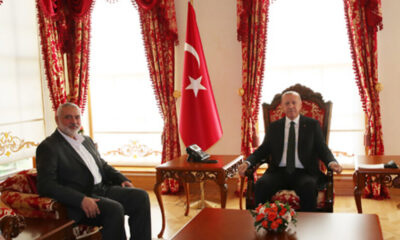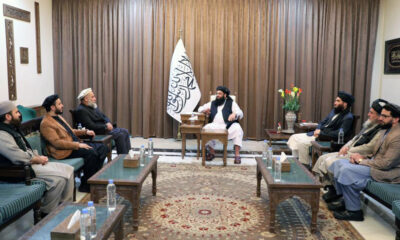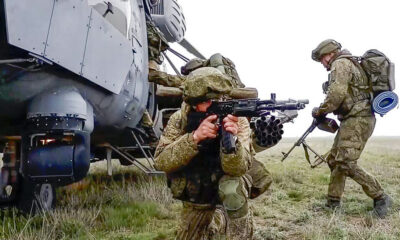World
82 killed in Baghdad COVID-19 hospital fire: Interior ministry
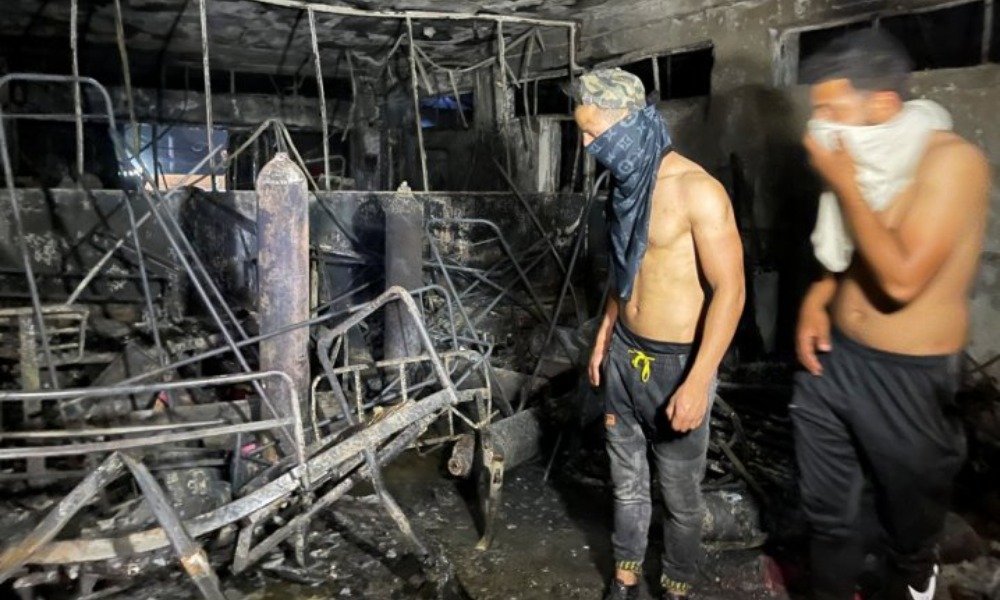
A fire sparked by an oxygen tank explosion killed at least 82 people and injured 110 at a hospital in Baghdad that had been equipped to house COVID-19 patients, an Interior Ministry spokesman said on Sunday.
“We urgently need to review safety measures at all hospitals to prevent such a painful incident from happening in future,” spokesman Khalid al-Muhanna told state television, announcing the toll.
The fire erupted on Saturday at the Ibn Khatib hospital in the Diyala Bridge area.
Ali Bayati, a member of Iraq’s semi-official High Commission for Human Rights, had said earlier a final death toll had not yet been officially announced but it could be between 30 to 45.
Patients’ relatives scrambled during the blaze to save their loved ones.
A man who had been visiting his brother described people jumping out of windows to escape.
“The fire spread, like fuel … I took my brother out to the street, next to the checkpoint. Then I came (back) and went up from there. To the last floor, that did not burn. I found a girl suffocating, about 19 years old, she was suffocating, she was about to die,” said Ahmed Zaki.
“I took her on my shoulders and I ran down. People were jumping… Doctors fell on the cars. Everyone was jumping. And I kept going up from there, got people and come down again,” Zaki said.
Patients were moved to other hospitals, medical sources said. But several families were still at the hospital hours after the fire had been extinguished, after failing to find them elsewhere.
Prime Minister Mustafa al-Kadhimi ordered an investigation.
“Such an incident is evidence of negligence and therefore I directed that an investigation be launched immediately and for the hospital’s manager and the heads of security and maintenance to be detained along with all those concerned until we identify those negligent and hold them accountable,” he said in a statement.
Iraq’s healthcare system, ruined by decades of sanctions, war and neglect, has been stretched during the coronavirus crisis. The country has recorded a total of 102,5288 infections, including 15,217 deaths, the health ministry said on Saturday.
Security has improved in recent years but Iraq still suffers from political violence, including militia rocket attacks on foreign forces and a low-level Islamic State insurgency.
Accidents due to neglect and wrecked infrastructure have compounded the woes of ordinary Iraqis.
In 2019, at least 90 people died when an overloaded ferry carrying families on an outing sank in the Tigris river in the northern city of Mosul.
World
US and allies plan more Iran sanctions; Israel war cabinet to meet again
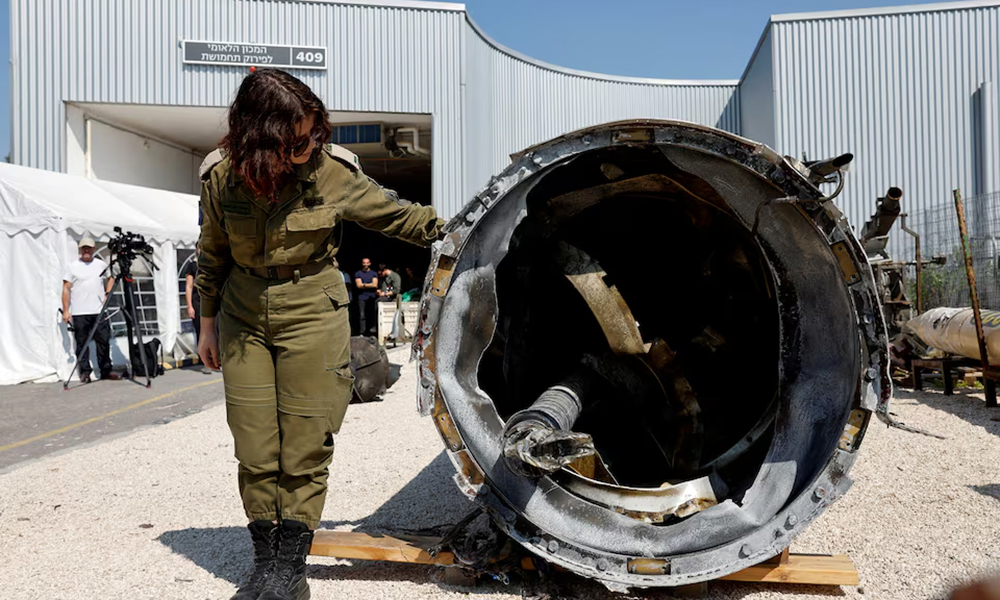
The U.S. and its allies planned fresh sanctions against Iran over its unprecedented attack on Israel, seeking to dissuade Israel from a major escalation as its war cabinet was set to meet for a third time on Wednesday to decide a response, Reuters reported.
While Saturday night’s attack caused no deaths and little damage thanks to the air defences and countermeasures of Israel and its allies, it has increased fears that violence rooted in the six-month-old Gaza war is spreading, with the risk of open war between long-time adversaries Iran and Israel.
Israel’s military chief of staff Herzi Halevi had promised Iran’s launch of more than 300 missiles, cruise missiles and drones at Israeli territory “will be met with a response”, but gave no details.
An Israeli government source said the war cabinet session scheduled for Tuesday had been put off until Wednesday, without elaborating, read the report.
Hoping to steer Israel away from massive retaliation, the U.S. and Europe flagged a toughening of economic and political sanctions against Iran.
The U.S. is planning to impose new sanctions targeting Iran’s missile and drone programme in the coming days and expects its allies will be following suit, National Security Advisor Jake Sullivan said in a statement on Tuesday.
Earlier, Treasury Secretary Janet Yellen said the U.S. would use sanctions, and work with allies, to keep disrupting Iran’s “malign and destabilising activity”.
She told a news conference in Washington all options to disrupt Iran’s “terrorist financing” were on the table, and she expected further sanctions against Iran to be announced soon.
European Union foreign policy chief Josep Borrell, speaking in Brussels after an emergency video conference of EU foreign ministers, said some member states had asked for sanctions against Iran to be expanded and that the bloc’s diplomatic service would begin working on the proposal.
Borrell said the proposal would expand a sanctions regime that seeks to curb the supply of Iranian drones to Russia so that it would also include the provision of missiles and could also cover deliveries to Iranian proxies in the Middle East.
Israeli Foreign Minister Israel Katz said he was “leading a diplomatic attack”, writing to 32 countries to ask them to place sanctions on Iran’s missile programme and follow Washington in proscribing its dominant military force, the Revolutionary Guard Corps, as a terrorist group, Reuters reported.
‘CALM HEADS’
Iran launched the attack in retaliation for an airstrike on its embassy compound in Damascus on April 1 attributed to Israel, but has signalled that it now deems the matter closed.
President Joe Biden told Israeli Prime Minister Benjamin Netanyahu at the weekend that the United States, Israel’s main protector, would not participate in an Israeli counter-strike.
British Prime Minister Rishi Sunak told Netanyahu in a call on Tuesday that escalation in the Middle East was in nobody’s interest and would only worsen insecurity in the region, so it was “a moment for calm heads to prevail”, Sunak’s office said.
Japan Foreign Minister Yoko Kamikawa “strongly urged Israel to exercise restraint” during a call with her Israeli counterpart Israel Kantz on Tuesday evening, according to a readout of the call issued by Japan’s foreign ministry.
The prospect of Israeli retaliation has alarmed many Iranians already enduring economic pain and tighter social and political controls since major protests in 2022-23, read the report.
Since the war in Gaza began in October, clashes have erupted between Israel and Iran-aligned groups based in Lebanon, Syria, Yemen and Iraq.
Israel said four of its soldiers were wounded hundreds of metres inside Lebanese territory overnight, the first known Israeli ground penetration into Lebanon since the Gaza war erupted, although it has regularly traded fire with the heavily armed Lebanese Hezbollah militia.
In Gaza itself, where more than 33,000 Palestinians have been killed in the Israeli offensive according to Gaza health ministry figures, Iran’s action drew applause.
Israel began its campaign against Hamas, the Iranian-backed Palestinian militant group that runs Gaza, after the militants attacked Israel on Oct. 7, killing 1,200 people and taking 253 hostages, by Israeli tallies.
World
Israeli military vows response to Iran attack as calls for restraint mount
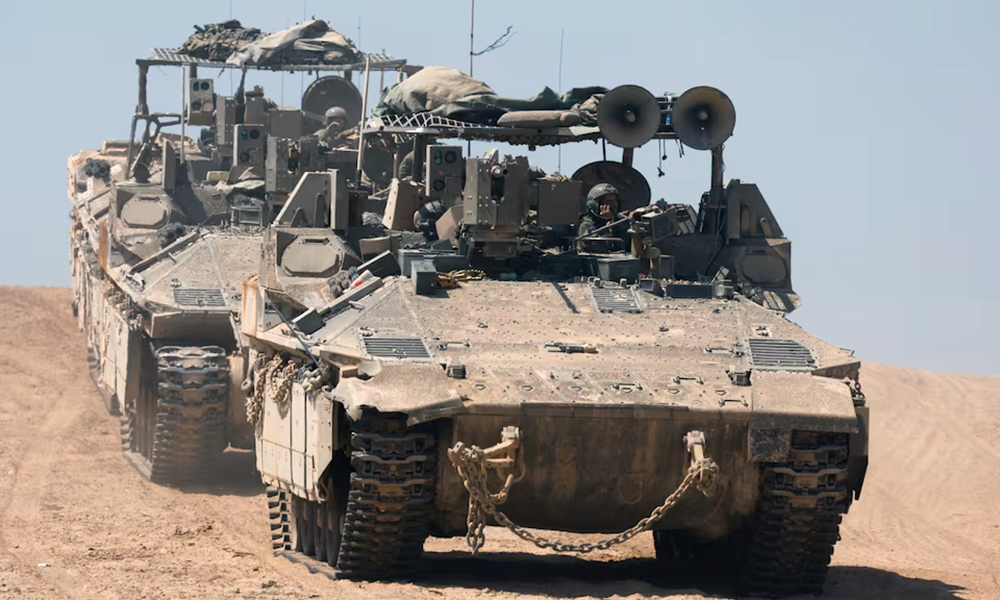
Israelis awaited word this week on how Prime Minister Benjamin Netanyahu would respond to Iran’s first-ever direct attack as international pressure for restraint grew amid fears of an escalation of the conflict in the Middle East.
Netanyahu on Monday summoned his war cabinet for the second time in less than 24 hours to weigh a response to Iran’s weekend missile and drone attack, a government source told Reuters.
Military Chief of Staff Herzi Halevi said Israel would respond. He provided no details.
“This launch of so many missiles, cruise missiles, and drones into Israeli territory will be met with a response,” he said at the Nevatim Air Base in southern Israel, which sustained some damage in Saturday night’s attack.
The prospect of Israeli retaliation has alarmed many Iranians already enduring economic pain and tighter social and political controls since protests in 2022-23.
Iran launched the attack in retaliation for what it says was an April 1 Israeli airstrike on its embassy compound in Damascus, and signaled that it does not seek further escalation, Reuters reported.
While the attack caused no deaths and limited damage, it has increased fears of open warfare between the long-time foes and fuelled concerns that violence rooted in the Gaza war is spreading.
U.S. President Joe Biden told Netanyahu at the weekend that the United States, which helped Israel blunt the Iranian attack, will not participate in an Israeli counter-strike.
Iran’s response
The Iranian Army Chief Commander Major General Abdolrahim Mousavi said on Monday however that Iran will not hesitate to give a “stormy and unified” response to any act of aggression against it.
In a message marking the National Army Day, Mousavi said great defensive measures of the country’s Army and Armed Forces have resulted in strong deterrent power.
According to him, Iran will respond to any aggression against the country’s national interests, borders and security, Iran’s Press TV reported.
Mousavi emphasized that the retaliatory strikes, dubbed Operation True Promise, revealed only a part of the capacity and strong will of the Iranian Armed Forces and were carried out in cooperation among the Islamic Revolution Guards Corps (IRGC) Aerospace Division, the Army, and the Defense Ministry.
Press TV reported that the Israeli airstrikes on Iran’s embassy compound in Damascus killed two generals of Iran’s Islamic Revolution Guards Corps (IRGC), Brigadier General Mohammad Reza Zahedi and General Mohammad Hadi Haji Rahimi, as well as five officers.
In response, on Saturday night, the IRGC targeted Israel with a barrage of drones and missiles. The extent of the damage on Israeli military bases is yet to be specified.
Following the reprisal, Iran warned Israel against taking any retaliatory actions and also urged the US to try not to involve itself in the conflict and signaled that it viewed the matter as “concluded.”
World
US will not take part in any Israeli retaliatory action against Iran
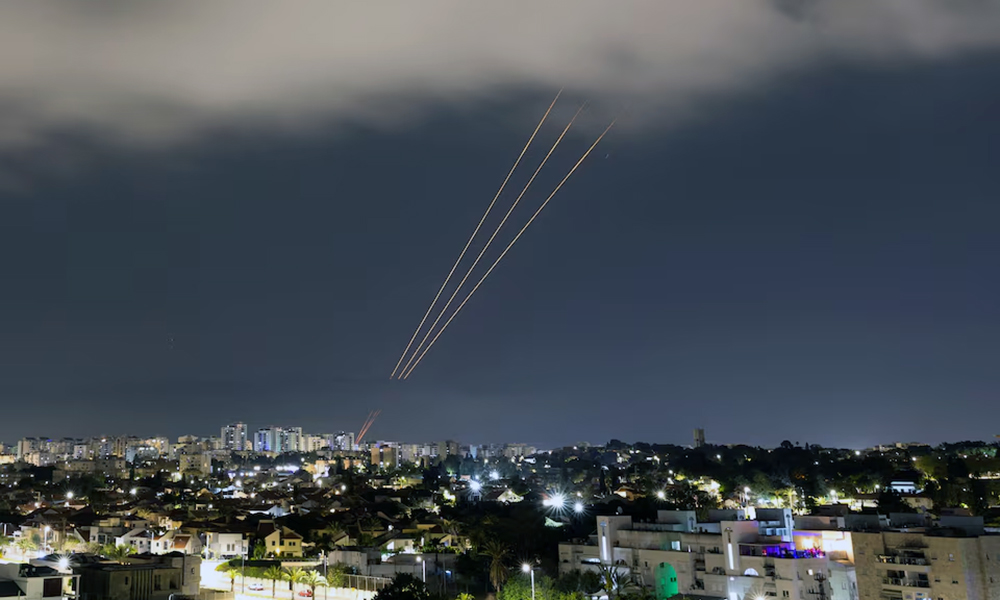
The United States said Sunday it will not join any Israeli counterattack on Iran, with President Joe Biden warning Prime Minister Benjamin Netanyahu to “think carefully” about any escalation.
The White House said Biden did not want a wider war after helping key ally Israel repel a massive aerial attack by Tehran — itself in retaliation for a presumed Israeli strike that killed an Iranian general in Damascus, AFP reported.
“We’re not looking for a wider war with Iran,” White House National Security Council spokesman John Kirby said on NBC’s “Meet the Press,” adding that the United States does not “want to see this escalate.”
Kirby said Netanyahu was “well aware” of Biden’s feelings after the two leaders spoke on Saturday while Iran’s unprecedented attack was still unfolding.
The assault saw Iran fire more than 300 drones and missiles towards Israel late Saturday, injuring 12 people, the Israeli army said.
US officials said American warplanes had brought down around 70 drones while US ships downed between four and six ballistic missiles.
But a senior Biden administration official confirmed that Biden had told Netanyahu that Washington would not offer military support for any retaliation on Iran, AFP reported.
“We would not be a part of any response they do,” the official told reporters on a call, speaking on condition of anonymity. “We would not envision ourselves participating in such an act.”
Biden and Netanyahu spoke at a time of “heightened emotion” while the attacks were still ongoing and “had a discussion about trying to slow things down.”
The US president “made very clear to the prime minister last night that we do have to think carefully and strategically about the risks of escalation.”
Israel was on high alert Sunday after Iran’s unprecedented attack sparked fears of a broader conflict.
-

 Latest News5 days ago
Latest News5 days agoTop former US general claims Daesh-Khorasan is ‘on the upswing’
-

 Sport4 days ago
Sport4 days agoACL draw to be broadcast live on ATN channels
-

 Business5 days ago
Business5 days agoAfghanistan reaches self-sufficiency in production of 133 items: MoIC
-

 Health5 days ago
Health5 days agoMajority of Afghans with mental disorders are women: officials
-

 Regional4 days ago
Regional4 days agoIRGC chief warns of harsher response if Israel attacks Iran
-
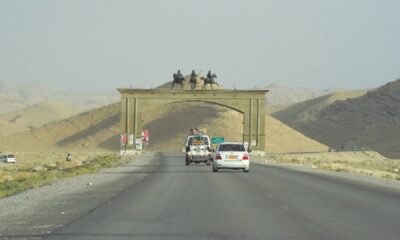
 Regional5 days ago
Regional5 days agoGunmen kill 9 men after abduction in southwest Pakistan
-
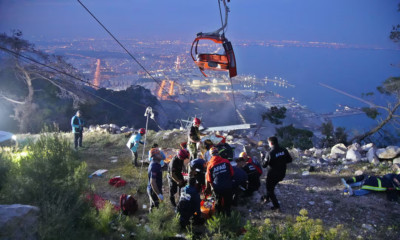
 World5 days ago
World5 days agoOne killed, 10 injured in cable car accident in southern Turkey
-
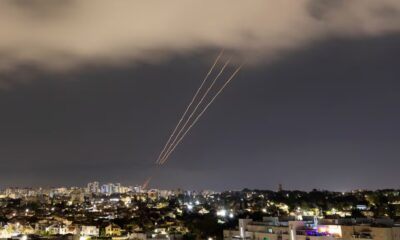
 Regional4 days ago
Regional4 days agoIran launches retaliatory attack on Israel with hundreds of drones, missiles


